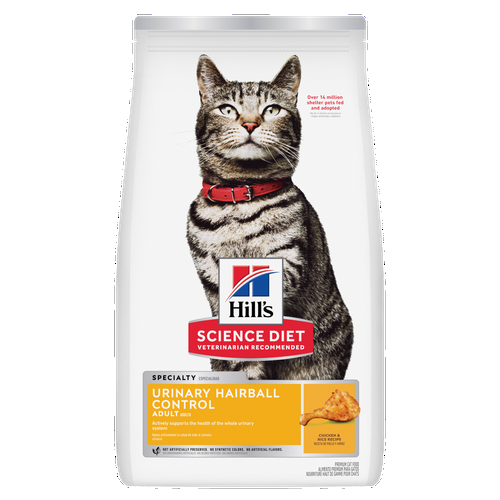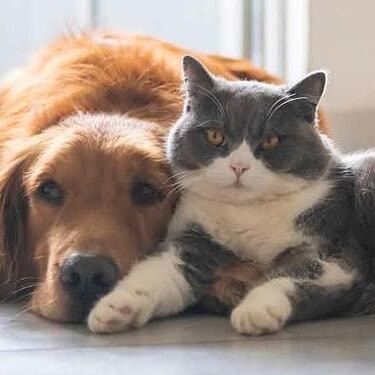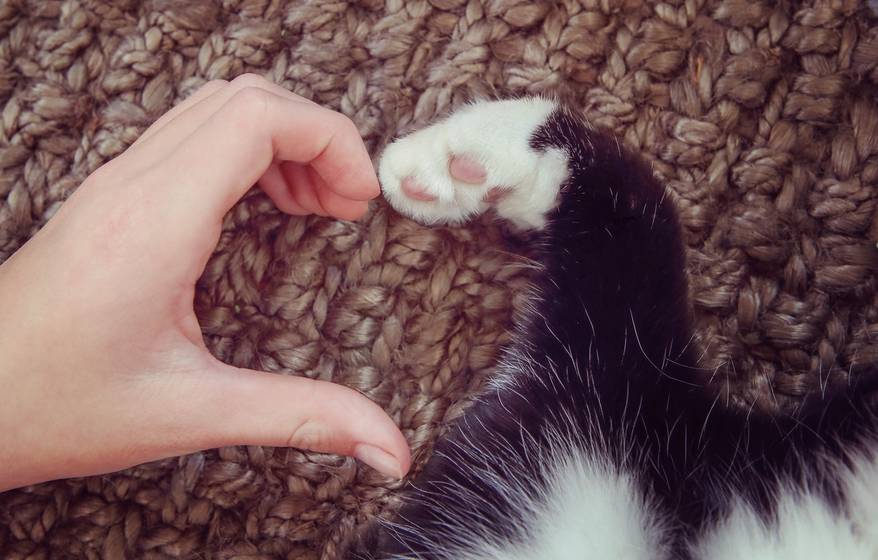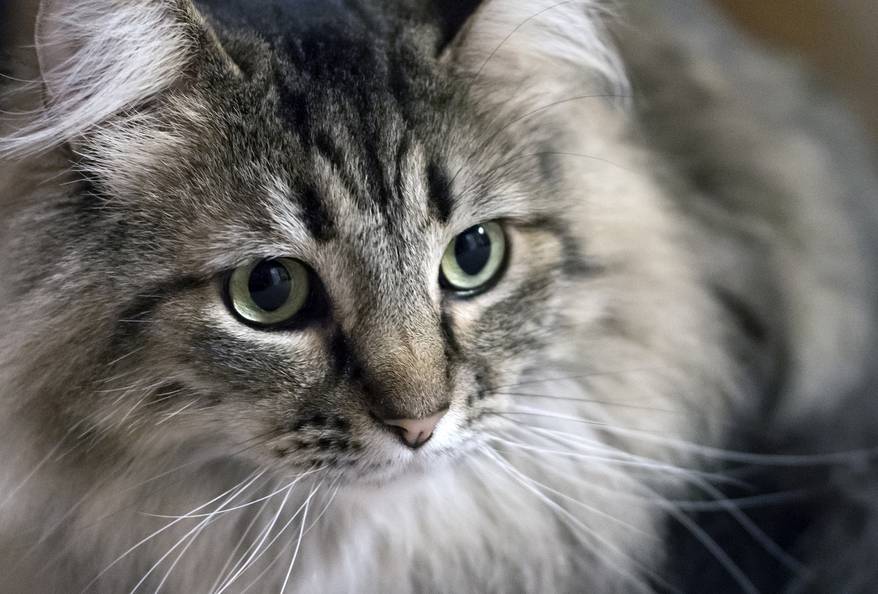
-
Find the right food for your petTake this quiz to see which food may be the best for your furry friend.Find the right food for your petTake this quiz to see which food may be the best for your furry friend.Featured products
 Adult 7+ Small & Mini Chicken & Brown Rice Recipe Dog Food
Adult 7+ Small & Mini Chicken & Brown Rice Recipe Dog FoodFor the unique nutritional needs of mature Small & Mini dogs
Shop Now Adult Small & Mini Lamb Meal & Brown Rice Recipe Dog Food
Adult Small & Mini Lamb Meal & Brown Rice Recipe Dog FoodFor the faster metabolism of Small & Mini dogs
Shop Now Hill's Science Diet Adult Oral Care Chicken, Brown Rice & Barley Recipe Dog Food
Hill's Science Diet Adult Oral Care Chicken, Brown Rice & Barley Recipe Dog FoodClinically proven kibble technology to reduce plaque & tartar build-up
Shop NowFeatured products Hill's Science Diet Adult Sensitive Stomach & Skin Dog Food
Hill's Science Diet Adult Sensitive Stomach & Skin Dog FoodHighly digestible recipe, gentle on stomachs. Nourishes skin & promotes a lustrous coat
Shop Now Adult Urinary Hairball Control Chicken & Rice Recipe Cat Food
Adult Urinary Hairball Control Chicken & Rice Recipe Cat FoodActively supports the health of the whole urinary system
Shop Now Adult Indoor Chicken Recipe Cat Food
Adult Indoor Chicken Recipe Cat FoodSupports energy level and beautiful fur in indoor cats
Shop Now -
Featured articles
 Easy DIY Dog & Cat Toys: Nine of Our Favorites
Easy DIY Dog & Cat Toys: Nine of Our FavoritesBrowse this comprehensive guide for several of our favorite DIY dog and cat toys that are sure to put a little pep in your pet's step.
Read More 15 Pet-Friendly Cities Ideal for a US Road Trip
15 Pet-Friendly Cities Ideal for a US Road TripCheck out our list of pet-friendly U.S. cities that are excellent travel options, offering off-leash dog parks and pet-friendly restaurants & hotels.
Read More My Pet Ate a Lizard — What Should I Do?
My Pet Ate a Lizard — What Should I Do?Learn what to do if your pet eats a lizard, including whether they can be toxic and symptoms to keep an eye on when they've swallowed one.
Read More -


Cats are masters of disguise when it comes to discomfort and disease: they try hard not to let you know when they're weak, in pain or feeling sick. Nowhere does this seem more true than when you're talking about cat heart health, specifically the risk for feline heart disease.
Cats' wild ancestry makes them loath to show weakness for fear of being eaten by a predator. This instinct can make things tough for cat parents, especially for nervous newbies. You may be told to be on the lookout for evidence of illness, but do you know what to look for when it comes to your kitty's heart health?

Whether human or feline, the basics of heart health are the same: the heart is a muscle that pumps blood through the vessels of the body so it can deliver oxygen. If the heart stops pumping efficiently, the body risks becoming oxygen-depleted.
Unfortunately, heart disease and the issues associated with heart disease in cats tend to sneak up on you. Weakness, difficulty walking, and breathing difficulties can be subtle and hard to see.
Thankfully, a cat parent who's armed with some basic knowledge and a trusted veterinarian can:
- Identify the signs of feline heart disease
- Slow the onset of any signs
- Do their best to prevent the disease altogether
Types of Heart Disease in Cats
Cats get many kinds of heart disease but the most common is called cardiomyopathy, according to the Cornell Feline Health Center. This is a condition in which the left atrium of the heart muscle thickens, making it difficult for the blood to be pumped through. When this happens, fluid builds up in the lungs, a process referred to as congestive heart failure.
Hypertrophic cardiomyopathy is the most common kind of cardiomyopathy, writes Cornell. It's considered an inherited disorder and can affect cats of all ages but is typically diagnosed in older cats. Cats can also get cardiomyopathy from a nutritional deficiency in the amino acid taurine. Pets eating fish-only foods (naturally low in taurine) run the risk of damaging their hearts in this way.
Geriatric cats can also get cardiomyopathy when scar tissue builds up over time inside the heart. This occurs in about 10 percent of cardiomyopathy cases. Cornell also notes that congenital heart disorders are rare, affecting only 1 to 2 percent of kittens.



Tasty Tips
Feline Heart Disease FAQs
What are the risk factors?
Genetics play a large role in heart disease. Persians, Ragdolls, Maine coons and American shorthairs appear predisposed to hypertrophic cardiomyopathy, says the American College of Veterinary Internal Medicine, though all cats can develop this condition.
An incomplete meal plan (especially one that relies exclusively on fish) is a risk factor for cardiomyopathy, as well. Make sure to talk to your vet about ensuring your cat gets a well-balanced meal.
Can you prevent heart disease in cats?
In some cases, you can. Making sure your kitty gets balanced, complete meals is fundamental to preventing heart disease.
How does exercise help with heart health?
A healthy weight is crucial to an energetic and enjoyable life, but avoiding obesity is especially important for those who suffer the symptoms of heart disease. Cats may experience a heart problem more severely if they're carrying excess weight. Take time each day to play with your cat. A few minutes each day is enough exercise for your cat to help keep the weight off and help fuel with heart health.
Does nutrition play a role in heart disease prevention?
Apart from complete and balanced meals in quantities tailored to your cat's caloric needs (to keep her at a trim weight), there's no specific meal plan recommended for prevention. If treatment becomes necessary, however, ask your vet if you'll need to make any changes to your cat's food to help manage the disease.
What else should I know?
Diseases like hyperthyroidism, hypertension and anemia can all affect the heart's fundamental workings. It's important to recognize these early and manage them carefully. If your cat suffers from a combination of heart disease and another health condition, treating one issue can sometimes alleviate the other.
Some cats with heart disease can develop a painful, paralyzing condition called saddle thrombus if a blood clot develops in the heart and moves out of the aorta. The clot blocks blood flow to a cat's hind legs, making them cold to the touch or even bluish under the fur. Bring your cat in for wellness exams to have her heart rhythm checked, and seek emergency care immediately if she starts dragging her back legs.
Monitoring Cat Heart Health
The most important thing to know when it comes to monitoring heart health in cats is that veterinarians can often identify heart disease before symptoms occur. A heart murmur, audible via stethoscope, is the most common clue. Blood tests and a complete physical examination at least once a year are highly effective at screening your pet for other diseases that can affect her heart.
We all know it can be hard getting a cat to the vet, but can you think of a better reason than keeping her heart in good shape? Watching out for your kitty's cardiac well-being will keep her around to love you for that much longer.


Dr. Patty Khuly is an award-winning veterinarian known for her independent thinking, her spirited pet advocacy, her passion for the veterinary profession, and her famously irreverent pet health writing.
Dr. K is an honors graduate of both Wellesley College and the University of Pennsylvania School of Veterinary Medicine. She received her MBA at The Wharton School of Business as part of the prestigious VMD/MBA dual-degree program. She now owns Sunset Animal Clinic, a veterinary practice in Miami, Florida.
Related products
Related articles

Put your cat on a diet without them knowing
Our low calorie formula helps you control your cat's weight. It's packed with high-quality protein for building lean muscles, and made with purposeful ingredients for a flavorful, nutritious meal. Clinically proven antioxidants, Vitamin C+E, help promote a healthy immune system.
Put your cat on a diet without them knowing
Our low calorie formula helps you control your cat's weight. It's packed with high-quality protein for building lean muscles, and made with purposeful ingredients for a flavorful, nutritious meal. Clinically proven antioxidants, Vitamin C+E, help promote a healthy immune system.

